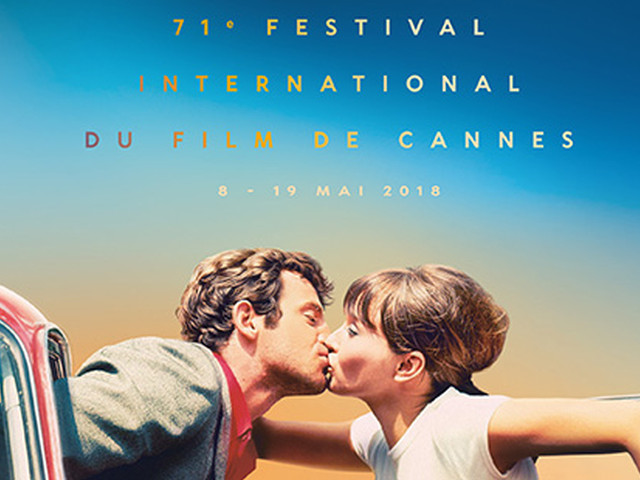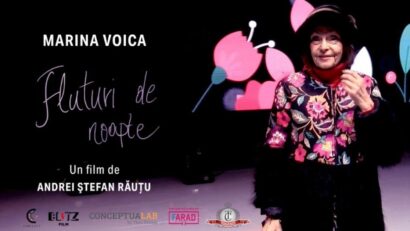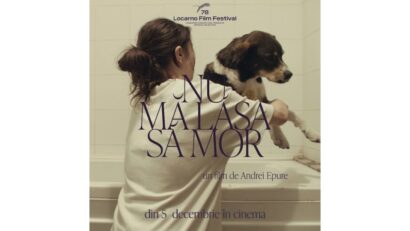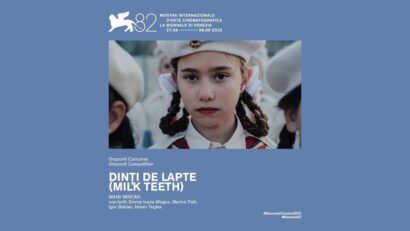“Equally Red and Blue”, a short film by Georgiana Moldoveanu
The short film Equally Red and Blue was the only Romanian film in competition at the Cannes Film Festival this year.

Corina Sabău, 26.05.2018, 12:46
The short film Equally Red and Blue was
the only Romanian film in competition at the Cannes Film Festival that reached
its 71st edition this year. The festival started on May 8 and came
to an end on May 19. Directed by Georgiana Moldoveanu and produced by the I.L.
Caragiale National University of Theatre and Film in Bucharest, the short film
was selected for the Cinéfondation
section of the Cannes Film Festival which is devoted exclusively to young
talents. This year the organisers chose for this section 17 short films from
more than 2,400 shorts received from all over the world. 14 countries from 4
continents were represented in this section of the Cannes festival and 12 of
the 22 selected directors are women.
Georgiana Moldoveanu graduated from the I.L.
Caragiale National University of Theatre and Film and became known in Romania
thanks to her film Windows that received an award at the CineMAiubit
festival. We talked to director Georgiana Moldoveanu about her passion for
film, about how a story can be turned into a film and about her new short film
presented for the first time at the Cannes Festival:
I grew up listening to stories on disc, and at
that age, when you don’t ask questions about what’s coming next, I very much
wanted to become a story teller, the person whom you don’t see but who guides
you through the story. I still want to be a storyteller. And this is an
important aspect for a director when making a film. As to the short film Equally
Red and Blue I could say that it is a story. It does contain clear clues
that you are part of a story, and you can identify them from the very first
scenes. I wanted to make a movie that could be associated with a story, the
characters in my story are facing off and some of them could be labelled as
negative. But towards the end of the film things change, the end is actually
open. I believe that good triumphs over evil, and this positive ending also
happens thanks to the audience’s contribution.
Equally Red and Blue is the story of Ana, who is celebrating a year
since she has been in a relationship with Stefan. It is a different kind of
relationship, another kind of anniversary, and another kind of present. Ana agrees
to be a surrogate mother for the baby that Stefan’s wife cannot carry. Much too
late, Stefan realises that he in fact wants something else. It is a story
inspired from reality, which Georgiana wanted to put on film:
I will tell in short a moment I lived
alongside a friend, a friend who tried for years to have a child, but nothing
worked. And so together I lived this amazing moment which for me got even more
intense as time went by. My friend had to get to the hospital that prepared her
for her in vitro fertilisation. It was late at night, the streets were mostly
clear, and we stopped for a few seconds in an intersection, seconds that seemed
like hours. We were close to the hospital, and even though my friend had been
there many times, she could not find her way there. I don’t recall her saying
much back then, but I caught with the corner of my eye a look on her face that
I hadn’t until then. It was a look that gathered within itself everything that
she felt. That is because it was time to have the procedure, and we just kept
lingering in the intersection, because we didn’t know the way.
Georgiana was completely taken by surprise by
the selection at Cannes:
I didn’t expect that, and I was very happy, a
selection at the Cannes festival makes you very happy. But a director does not
make a movie thinking of awards. It is less selfish than that, you think mostly
of the story you’re trying to tell, not live your days thinking of festivals.
What you want most is for your story to be the closest to what you wanted to
convey to the viewer.
The short film Equally Red and Blue
features actors Miruna Blidariu, Bogdan Albulescu, Florentina Tilea and Mihaela
Popa, and is produced by Alexandra Morariu Buzoianu and Adrian Bulgariu.






























